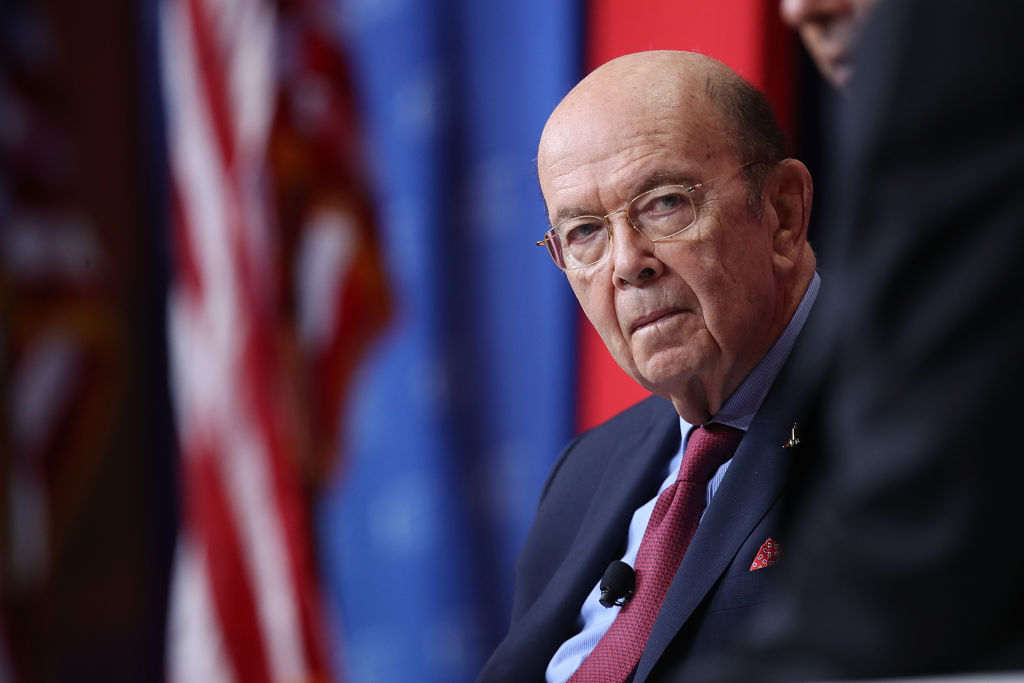New memo suggests Wilbur Ross lied to Congress about the 2020 census citizenship question


A free daily email with the biggest news stories of the day – and the best features from TheWeek.com
You are now subscribed
Your newsletter sign-up was successful
Commerce Secretary Wilbur Ross appears to have misled Congress when he testified that the Justice Department had "initiated" including a question about U.S. citizenship on the U.S. census, according to newly unredacted documents released Monday as part of a lawsuit. Ross said in March that the Justice Department had pushed for the citizenship question, which hasn't been included in the census since 1950, so it could enforce Section 2 of the Voting Rights Act. The new documents add to the evidence that Ross was the driving force.
In a September 2017 email to Ross, Commerce official Earl Comstock said he had approached the Justice Department in May to "discuss the citizenship question," and "Justice staff did not want to raise the question given the difficulties Justice was encountering in the press at the time (the whole Comey matter)." Comstock said he then tried the Department of Homeland Security, and they pointed him back to the Justice Department, so he asked a Commerce Department lawyer to explore "how Commerce could add the question to the census itself." A few months later, the Justice Department formally requested the citizenship question.
The Census Bureau's chief scientist, other researchers, and a bureau-sponsored marketing campaign have found that including the citizenship question depresses the participation of Latinos, Asians, and other minorities, skewing the constitutionally mandated decennial head count. Ross "personally lobbied the attorney general to submit the memorandum that the secretary 'then later relied on to justify his decision,'" plaintiffs' lawyers argued in the lawsuit, one of six around the country seeking to strike the citizenship question.
The Week
Escape your echo chamber. Get the facts behind the news, plus analysis from multiple perspectives.

Sign up for The Week's Free Newsletters
From our morning news briefing to a weekly Good News Newsletter, get the best of The Week delivered directly to your inbox.
From our morning news briefing to a weekly Good News Newsletter, get the best of The Week delivered directly to your inbox.
U.S. District Judge Jesse Furman, who's overseeing the lawsuit in Manhattan, had ordered the Trump administration to release the unredacted memos, saying they "go to the heart" of the central question of Ross' intent in adding the citizenship question. Furman has potentially scheduled a trial to start Nov. 5, though Justice Department lawyers are arguing against a trial and Ross deposition.
A free daily email with the biggest news stories of the day – and the best features from TheWeek.com
Peter has worked as a news and culture writer and editor at The Week since the site's launch in 2008. He covers politics, world affairs, religion and cultural currents. His journalism career began as a copy editor at a financial newswire and has included editorial positions at The New York Times Magazine, Facts on File, and Oregon State University.
-
 Local elections 2026: where are they and who is expected to win?
Local elections 2026: where are they and who is expected to win?The Explainer Labour is braced for heavy losses and U-turn on postponing some council elections hasn’t helped the party’s prospects
-
 6 of the world’s most accessible destinations
6 of the world’s most accessible destinationsThe Week Recommends Experience all of Berlin, Singapore and Sydney
-
 How the FCC’s ‘equal time’ rule works
How the FCC’s ‘equal time’ rule worksIn the Spotlight The law is at the heart of the Colbert-CBS conflict
-
 Witkoff and Kushner tackle Ukraine, Iran in Geneva
Witkoff and Kushner tackle Ukraine, Iran in GenevaSpeed Read Steve Witkoff and Jared Kushner held negotiations aimed at securing a nuclear deal with Iran and an end to Russia’s war in Ukraine
-
 Pentagon spokesperson forced out as DHS’s resigns
Pentagon spokesperson forced out as DHS’s resignsSpeed Read Senior military adviser Col. David Butler was fired by Pete Hegseth and Homeland Security spokesperson Tricia McLaughlin is resigning
-
 Judge orders Washington slavery exhibit restored
Judge orders Washington slavery exhibit restoredSpeed Read The Trump administration took down displays about slavery at the President’s House Site in Philadelphia
-
 Hyatt chair joins growing list of Epstein files losers
Hyatt chair joins growing list of Epstein files losersSpeed Read Thomas Pritzker stepped down as executive chair of the Hyatt Hotels Corporation over his ties with Jeffrey Epstein and Ghislaine Maxwell
-
 Judge blocks Hegseth from punishing Kelly over video
Judge blocks Hegseth from punishing Kelly over videoSpeed Read Defense Secretary Pete Hegseth pushed for the senator to be demoted over a video in which he reminds military officials they should refuse illegal orders
-
 Trump’s EPA kills legal basis for federal climate policy
Trump’s EPA kills legal basis for federal climate policySpeed Read The government’s authority to regulate several planet-warming pollutants has been repealed
-
 House votes to end Trump’s Canada tariffs
House votes to end Trump’s Canada tariffsSpeed Read Six Republicans joined with Democrats to repeal the president’s tariffs
-
 Bondi, Democrats clash over Epstein in hearing
Bondi, Democrats clash over Epstein in hearingSpeed Read Attorney General Pam Bondi ignored survivors of convicted sex offender Jeffrey Epstein and demanded that Democrats apologize to Trump
